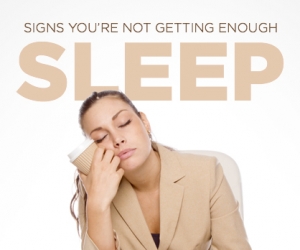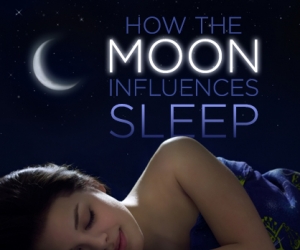Tips on Falling Asleep Faster
Sleep is essential to good health
Do you have trouble sleeping? If so, you’re far from alone. While others are happily snoozing in their beds, you’re laying there, wide awake, and stressing about your inability to sleep.
Of course, worrying about being unable to sleep only makes it worse, and you’ll quickly find yourself wide awake at 3 a.m.
Read on to hear from our experts on how you can train yourself to fall asleep faster and get a good night’s sleep.
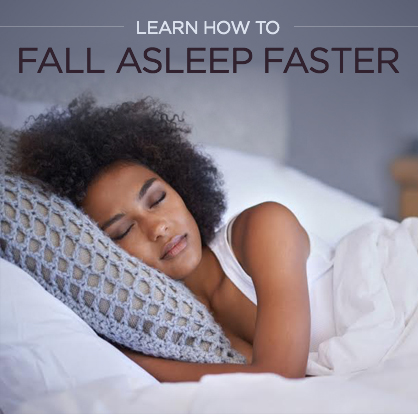
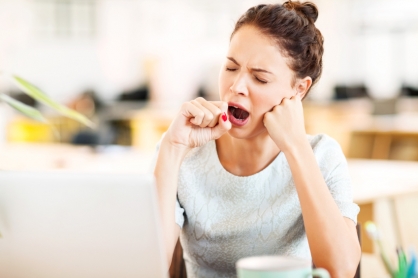
Sleep isn’t a priority for some
With society's demand for more and more work, sleep is falling by the wayside. There are studies that show the majority of Americans are sleep deprived, said Dr. Scott Schreiber, a Newark, Delaware chiropractor.
“Sleep deprivation is associated with a host of health problems, such as decreased performance, decreased cognition, increased stress, and injury, name a few. The quality of sleep is more important than the amount of sleep. The average person needs 7-9 hours of quality sleep per night to maintain optimum function,” he said.
Schreiber shared his best tips on how to make sure you fall asleep easily and stay asleep:
- Make sure your mattress is conducive to sleeping. Mattresses last between seven to ten years and need to be supportive.
- Only use your bed for sleeping. Your brain will have trouble turning off if you use your bed for multiple purposes. (And no, we’re not talking about sex. That’s allowed.)
- Keep TV watching to minimum prior to going to bed. Television is stimulating and will make getting to sleep more difficult.
If you still have trouble sleeping, Schreiber suggested these supplements to help with sleep: Magnesium, a natural muscle relaxer; Valerian root and passion flower, all calming and relaxing herbs; 5-hydroxytryptophan; and melatonin.
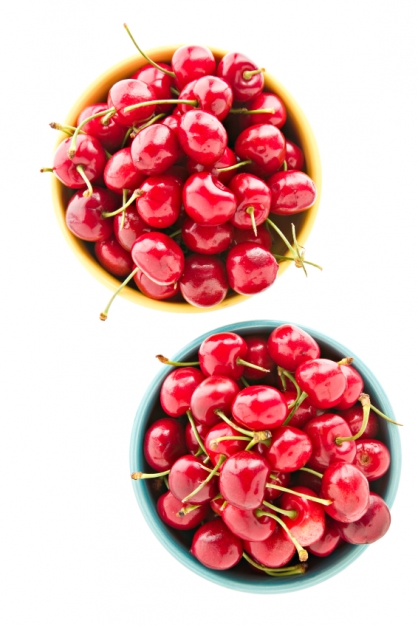
What you eat matters
Stacy Goldberg, CEO and founder of Savorfull, and nutritioinist for the Detroit Pistons and Cleveland Cavaliers, said these are the worst foods to consume before bedtime:
Alcohol: Although alcohol may initially help you fall asleep, it contributes to less restful sleep, night sweats, nightmares, headaches and frequent awakenings. It is best to limit or avoid alcoholic beverages 4-5 hours before bedtime, especially those that contain caffeine.
If you do consume alcohol late in the evening, make sure to do so on a full stomach and drink plenty of water to dilute the effects of the alcohol. It is also important to avoid sugary alcoholic drinks with sweetened juice or flavored liquors. Large amounts of sugar may disrupt sleep quality and lead to increased weight gain.
Spicy or Acidic Foods: Spicy and acidic foods interfere with sleep quality by impacting digestion. They also contribute to heartburn, which is made worse by lying down. Avoid spicy and acidic foods (tomatoes, chocolate, chili peppers, spicy sauces) directly before bed and be sure to finish large meals at least 4 hours before bedtime to ensure plenty of time for digestion.
Caffeine: A cup of joe may sound like a good pick-me-up after a long flight, but studies show that consuming large amounts of caffeine as much as 6 hours before bedtime largely impacts sleep quality. The recommended daily “safe dose” of caffeine is 400 mg, according to a report published by the American Chemical Society. The numbers can add up quickly; a “grande” Starbucks coffee, for example, contains 330mg of caffeine.
Caffeine is highly disruptive to sleep and causes restlessness. Avoid foods and drinks with more than 200mg of caffeine (coffee, green and black tea, energy drinks, soda and chocolate) 4-6 hours before going to sleep.
Goldberg suggests eating these foods before sleep, to ensure a good night’s rest:
Tart cherries: Tart cherries are a natural source of melatonin, a hormone that regulates sleep. In one small study, older adults with insomnia slept an average of 90 minutes longer when they consumed 8 ounces of tart cherry juice twice a day. Another study found that adults who drank 2 servings of tart cherry juice per day increased their sleep time by 40 minutes and their sleep efficiency by 6% over those who drank other beverages. Additionally, tart cherries have a high concentration of anti-inflammatory antioxidants, making them a great recovery boost.
Try adding 8-16 ounces of tart cherry juice into your daily routine to experience longer, more restful sleep. You can also try a handful of dried tart cherries for a nighttime snack, or frozen tart cherries in your favorite smoothie recipe.
Foods high in magnesium: Magnesium deficiencies contribute to less restful sleep. Magnesium deficiency is very common among adults of all ages, with one study finding that 58 percent of adult participants regularly consumed less than the recommended amount. Increased magnesium consumption throughout the day may increase sleep quality and duration. Foods that are high in magnesium include dark leafy greens (spinach, kale, collards), avocado, nuts, wild salmon and dark chocolate.
Foods high in tryptophan: Chances are you’ve heard about tryptophan’s ability to induce sleepiness after a large Thanksgiving turkey meal. Although this isn’t entirely true (turkey doesn’t contain that much tryptophan), tryptophan does help promote a better night of sleep by producing serotonin. Serotonin is a hormone that influences sleep patterns and the circadian rhythm. Yogurt, milk, oats, bananas, poultry, eggs, and peanuts all contain significant amounts of tryptophan that will help you sleep longer and better.
Follow these guidelines, and hopefully you'll be able to fall asleep easier, and faster.
